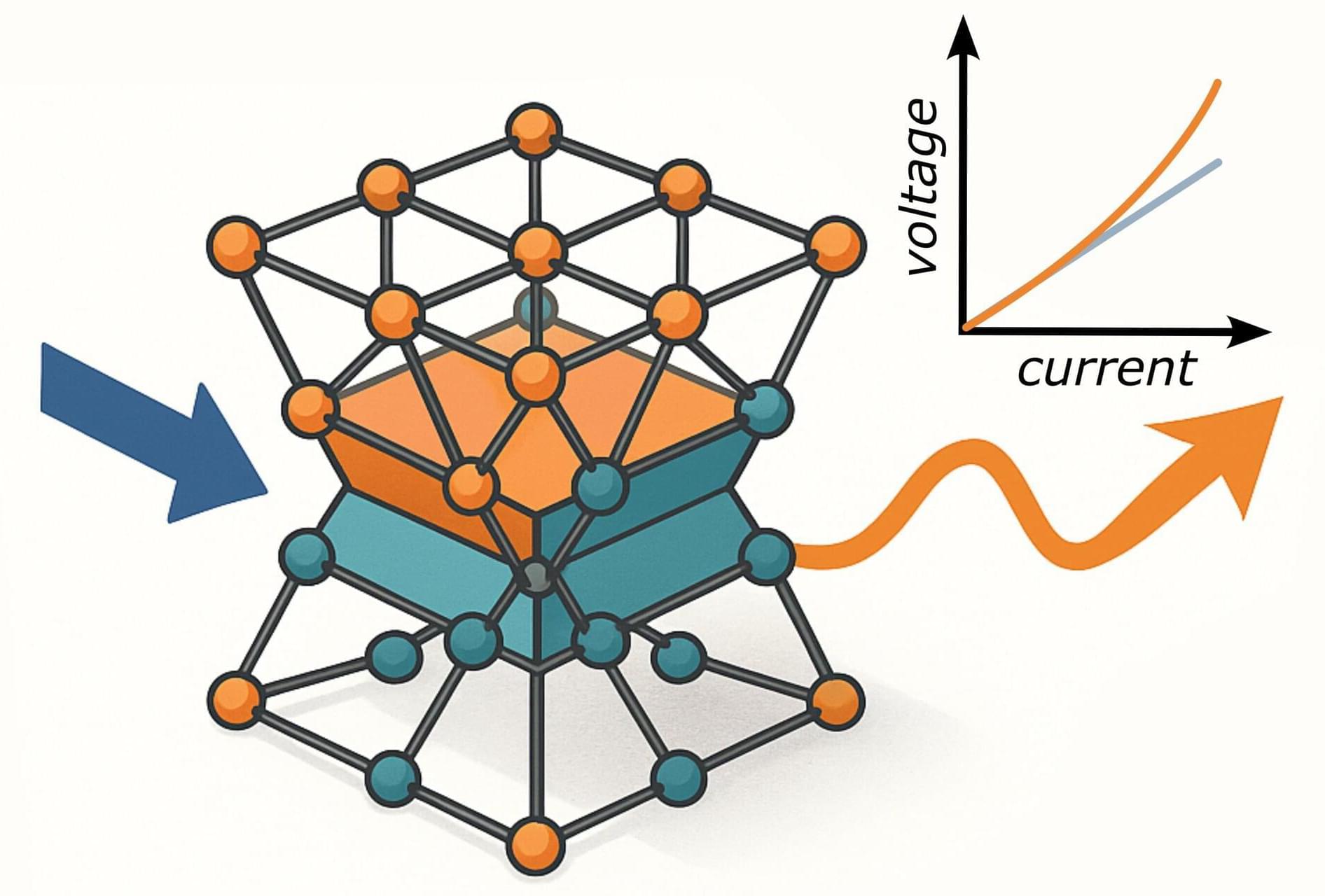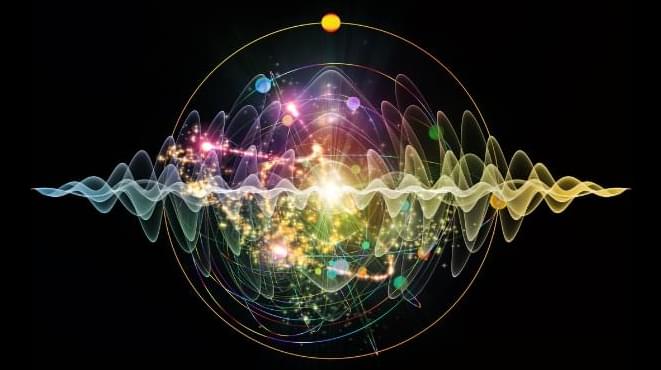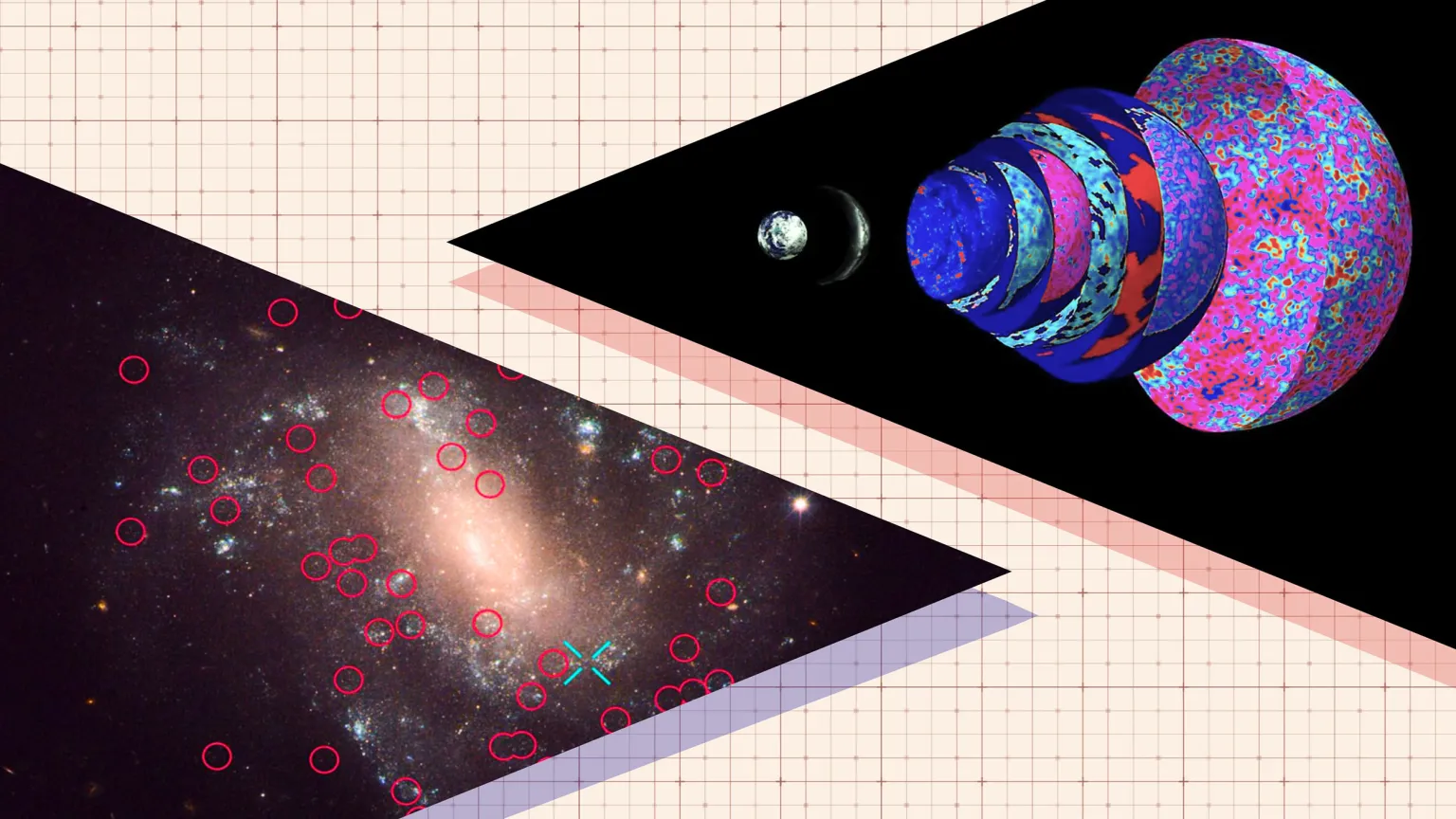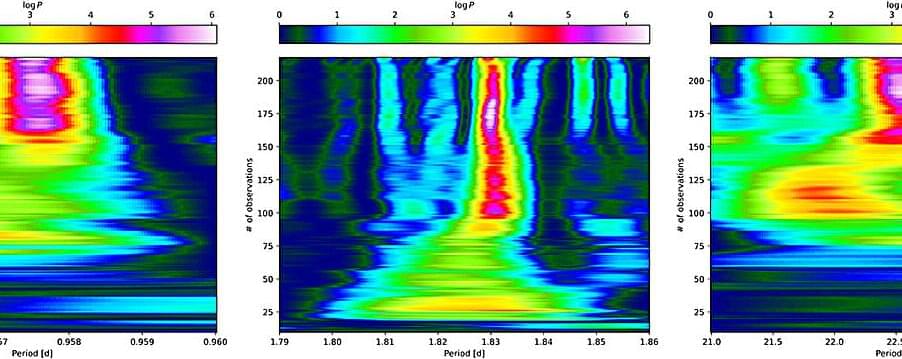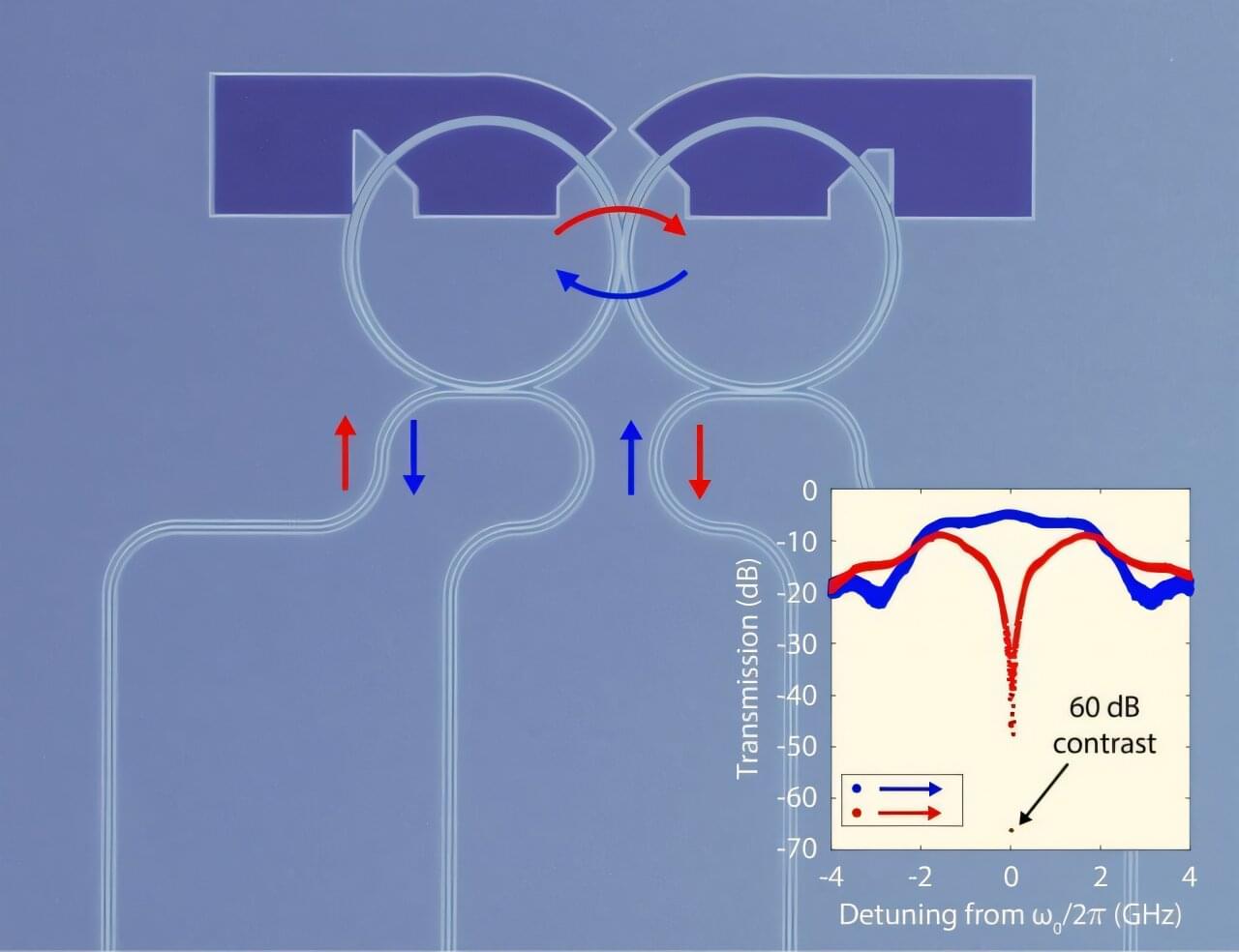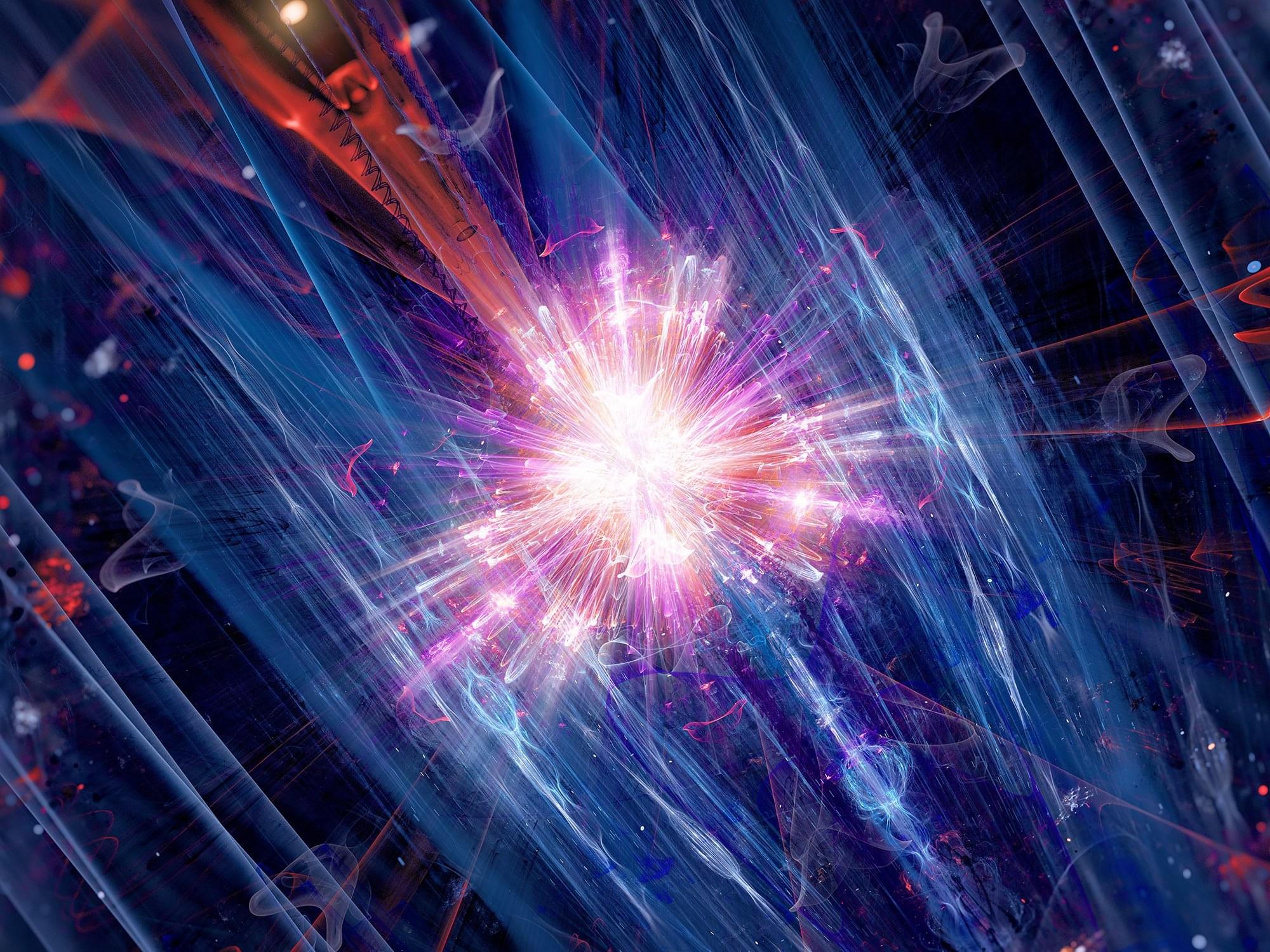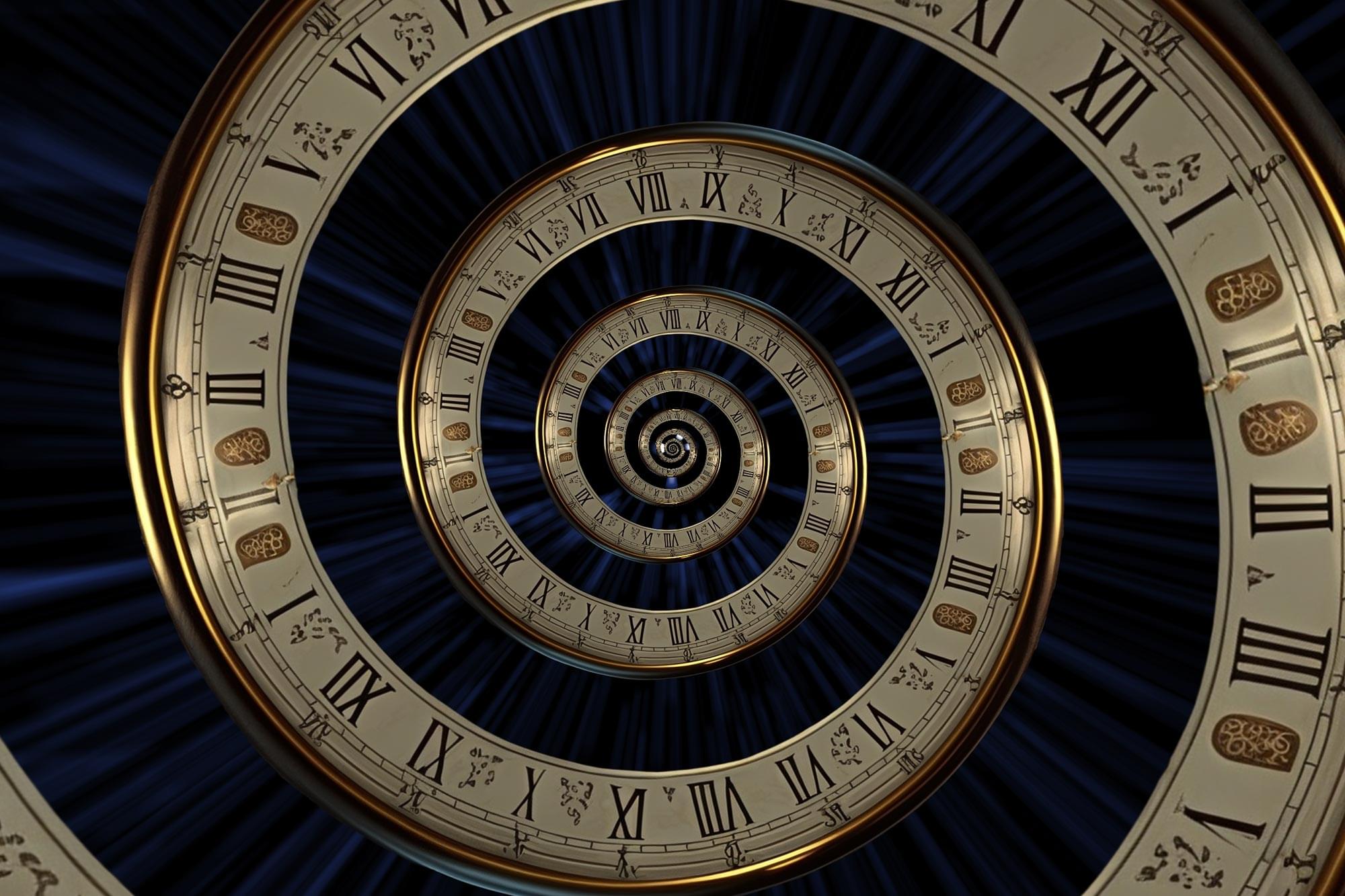In a review just published in Nature Materials, researchers take aim at the oldest principle in electronics: Ohm’s law.
Their article, “Nonlinear transport in non-centrosymmetric systems,” brings together rapidly growing evidence that, when a material lacks inversion symmetry, the familiar linear relation between current and voltage can break down, giving rise to striking quadratic responses.
The study was led by Manuel Suárez-Rodríguez—working under the guidance of Ikerbasque Professors Fèlix Casanova and Luis E. Hueso at CIC nanoGUNE, together with Prof. Marco Gobbi at the Materials Physics Center (CFM, CSIC-UPV/EHU).
